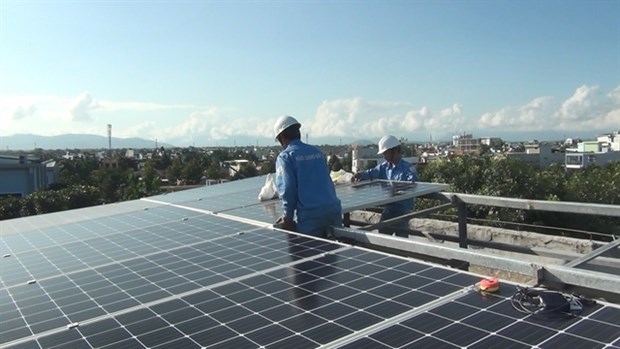Solar energy storage system offers low-cost solution for Vietnam
The Solar Storage System (ESS) offers a low-cost and low-emissions solution for peak-hour power supply, helping Vietnam pursue low emissions development and ensuring economic growth, according to an expert at a workshop held in Hanoi on January 27.
Mark Leslie, Managing Director of the Green Investment Group at Macquarie Capital, said the solution helps integrate solar power into the grid.
Energy storage is the capture of energy produced at one time for use at a later time, to reduce imbalances between demand and generation.
According to a representative from the Blueleaf Energy company - an organiser of the workshop - the solar energy storage system allows the use of low-cost solar power at noon to charge and then discharge during peak hours to meet peak loads.
Solar power sources are intermittent and fluctuate during the day, thus causing several issues for grid operation. The combination between the source and the energy storage system can lead to more stable performance.
Director Nguy Thi Khanh of the Green Innovation and Development Centre (GreenID) said the solar energy storage system will be a significant contributor to the economy, reducing expensive peak-hour generation costs and at the same time continuing to mobilise social participation in the development of the promising solar power market.
Vietnam needs to quickly adopt policies to promote the application of the energy storage solution in renewable energy plants or for the whole energy system to avoid wasting current social investment and make a transition to clean energy as fast as possible, Khanh stressed.
Electricity of Vietnam figures show that national electricity output generated from solar power in 2020 was 10.6 billion kWh, including 1.15 billion kWh from rooftop solar power, accounting for about 4.3% of the total output from the national electricity system.
According to Nguyen Duc Ninh, Director of the National Power Regulation Centre, last year the regulating agency cut 365 million kWh of unexploited solar power due to overloads in local networks, mainly in south-central provinces like Ninh Thuan and Binh Thuan.

